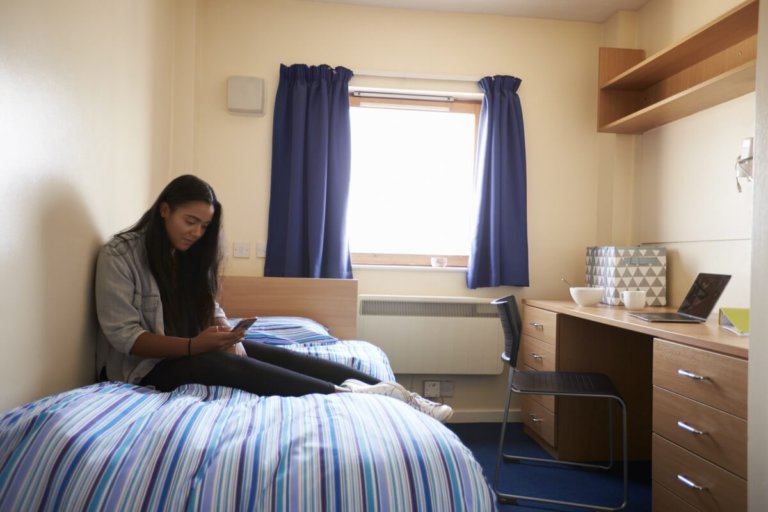
Should you live on-campus throughout your undergraduate years, or make the move to live off-campus?
It’s a big decision students have to grapple with. Many factors will contribute towards your decision, chief among them, your financial situation.
Here are some considerations:
Staying on-campus

Staying on-campus will suit some students better than others. Source: Shutterstock
More exposure to your peers
One of the benefits of staying on-campus is being in proximity with your peers 24/7. This translates to you having more opportunities to make friends and mingle, especially useful if you’re someone who takes time to warm up to people.
Enjoy a full range of services
Staying on campus entails paying for room and board per semester, which means freeing yourself the hassle of paying your monthly utility bills, such as electricity, gas and water bills, and in some instances, the internet bill. Unlike students who live off-campus, you’ll also save yourself the worry of footing the utility bills if your housemate or roommate decides to move out midway through the semester.
Food
If you don’t have the time or can’t be bothered to whip up your meals between classes, part-time work and your social life, staying on-campus will probably be ideal as your semester fees will likely cover food, so you can be assured of three hot meals per day, saving you ample cooking and prepping time.
Avoid buying furniture
Furniture can come with a hefty price tag, and staying on-campus means you’ll avoid buying bulky items such as a sofa or tables and chairs, as student accommodation typically has common areas with such comforts.
Staying off-campus

Staying off-campus lets you and your housemates set your own rules. Source: Shutterstock
Save cost
Depending on the area, staying off-campus can potentially cost less than staying on-campus as you can find housemates to keep costs down. You can also avoid paying for meal plans, which may be a requirement for those living on-campus and look for alternative affordable food options instead, such as cooking your meals.
Enjoy your privacy and freedom
A major pull factor for students to stay off-campus is the freedom and privacy that comes with finding your own accommodation. This means you can bid adieu to resident hall rules, have pets (if your housemates agree to it); avoid sharing a communal bathroom; cook what you want, when you want; and have the freedom to have company over without worrying about quiet hours.
You don’t have to move out during breaks
Students living on-campus typically have to move out during breaks, but those living off-campus will have the freedom to rent all-year round and save themselves the trouble of moving their belongings in and out of their accommodation.
Gain life experience
Moving off-campus means bearing more responsibilities such as ensuring your monthly bills are paid; learning to deal with issues surrounding your landlord and housemates, if any should surface; and commitment to the upkeep of your accommodation, no matter how busy your schedule gets.







